<< Previous | Displaying results 511-520 of 6809 for "" | Next >>
Isachar was born to a Jewish family in the Polish city of Radom, approximately 75 miles south of Warsaw. The city was the center of Poland's leather-tanning industry. Isachar's father worked as a salesman for a nearby tanning factory. His father was a successful salesman and the family lived comfortably. 1933-39: During registration for Isachar's first-grade class in 1934, a Jewish boy was pushed down the stairs. When his mother confronted the principal about the incident, all he said was that the boy had…
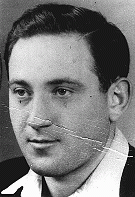
Bernard was one of five children born to a Jewish family in the southern Polish town of Rozwadow. His father, a World War I veteran incapacitated as a result of the war, supported his family on his military pension. In the early 1930s Bernard completed high school and worked on the family farm. 1933-39: In 1934 Bernard was recruited into the Polish army and stationed in Lvov, where he ran a canteen. After three years there he returned to his family's farm outside Rozwadow to work. On September 24, 1939,…
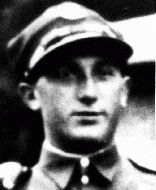
Aranka was the youngest of 10 children born to Jewish parents living in the highlands of Slovakia. While visiting Budapest to attend her sister's marriage, she was introduced to Jeno Muhlrad, a pharmacist. They were married and the couple moved in with Jeno's father and sisters who lived in Ujpest, a suburb of Budapest. Aranka had two children--Eva, born in 1924, and Andras, born six years later. 1933-39: Aranka's husband has leased his own pharmacy in downtown Ujpest so they can finally afford to move…
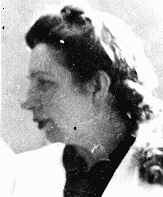
Leah and her four brothers were raised in a religious Jewish family in the city of Lvov. After obtaining her high school diploma, Leah attended university for one year. In 1931 she married Joseph Rapaport, and the couple settled in Warsaw. 1933-39: The Rapaports lived in the suburbs, and Joseph worked as a banker. Their daughter Zofia was born in May 1933. Each year at the Jewish holiday of Passover, they returned to Lvov to visit Leah's parents. Two days after Joseph was mobilized for military duty in…
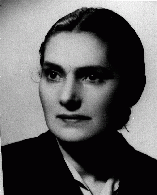
Henia was born to parents living in the small predominantly Jewish town of Kaluszyn, 35 miles east of Warsaw. By the early 1930s, hundreds of Jewish workers were employed in the town, some in small craft shops, as tailors and carpenters, and others in larger enterprises, as prayer-shawl weavers and fur coat makers. When Henia was in her twenties, she and her husband, Welwel, moved to Warsaw. 1933-39: When war broke out three months ago, many Jews left Warsaw in a mass exodus towards the east. They were…
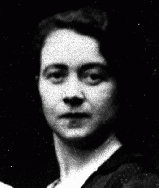
Janina's parents had converted from Judaism to Catholicism in the 1920s. When Janina was 4 years old, her parents divorced; Janina left Warsaw and went to live with her father near the Polish town of Radom, while her brother Tomas remained in Warsaw with his mother. Janina, or Jana as she was affectionately known, loved to read. 1933-39: When Jana was 12 she moved back to Warsaw to attend secondary school, and stayed with her mother. A year later, on September 8, 1939, the Germans were bombing Warsaw.…
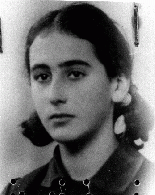
The youngest of three children, Masza was born to Jewish parents living 35 miles east of Warsaw in the small predominantly Jewish town of Kaluszyn. Her father owned a shop where he sold cosmetics and non-prescription medicines. Masza was close friends with a group of Jewish teenagers who went to the same public school and who spent much of their free time and vacations together. 1933-39: Majlich, Sara, and the rest of Masza's group have always liked discussing politics as they strolled down the main…
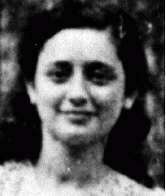
Mayer was born into a Jewish family in a village near Warsaw. His family was active there in the workers' movement. They decided to emigrate when Mayer was a child; his father hoped to find work in Argentina. As a young man, Mayer was arrested for being a communist. In prison, he organized a hunger strike. The police released him to keep him from recruiting the other prisoners to communism. 1933-39: Mayer joined one of the International Brigades and went to Spain to fight in the civil war against Franco…
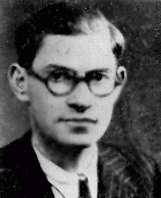
Lifcia and her brother and two sisters were born to religious Zionist parents in Radom, a major center of Polish leather production. The city had more than 100 tanneries and shoe factories. Lifcia's father worked as a leather broker, matching manufacturers with clients who sought specific types of leather. The Najman family lived in a two-room apartment in the center of town. 1933-39: At secondary school, Lifcia learned math, science, Polish language, history, and German. Three times a week she attended a…
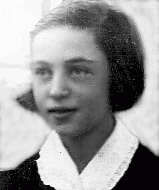
The mother of six children, Rivka lived 35 miles east of Warsaw in the small predominantly Jewish town of Kaluszyn. The Rzondzinski family was very religious. When Rivka's husband, Fiszel, died in the early 1930s, she and her oldest daughter, Channa, opened a newspaper kiosk near the Kaluszyn railroad station. 1933-39: When Germany invaded Poland several days ago, Rivka's daughter Raizel's husband and her two sons fled eastward to the USSR with other Jewish men. They were afraid that the Germans would…
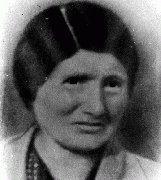
We would like to thank Crown Family Philanthropies, Abe and Ida Cooper Foundation, the Claims Conference, EVZ, and BMF for supporting the ongoing work to create content and resources for the Holocaust Encyclopedia. View the list of donor acknowledgement.